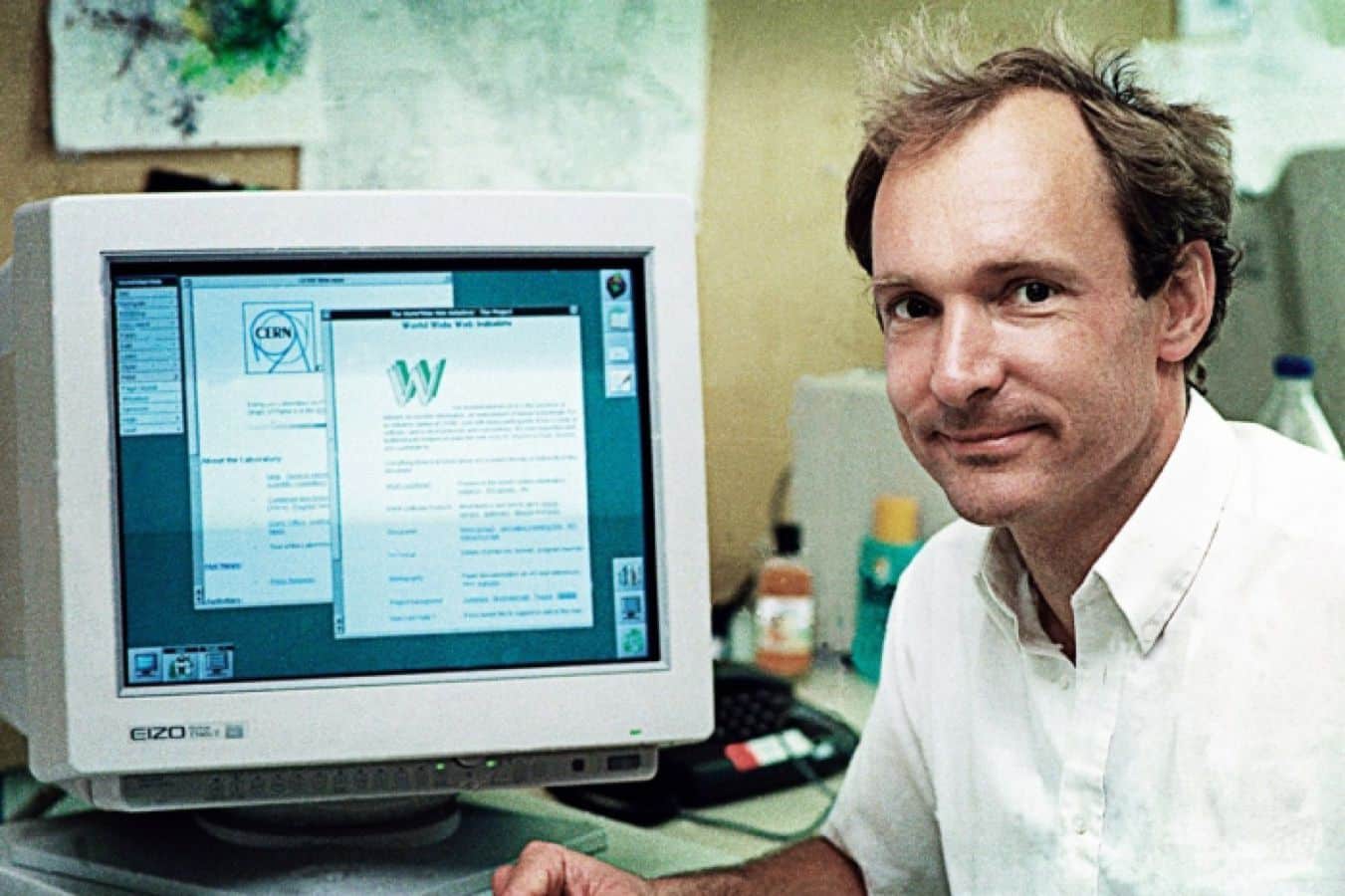Whether you are on Chrome, Firefox, or Safari, you have an address bar. There you should be able to see the omnipotent “www”. When you are searching for almost anything, “www” seems to be at the start right behind “https”.
The World Wide Web (WWW) was created under Tim Berners-Lee, a British computer scientist, and his team in 1989 at CERN. CERN, the European Organization for Nuclear Research, is located in Geneva Switzerland.

Working as a software engineer, Berners saw that it was hard for scientists to share information with one another from computer to computer. Based on this, he put together a document called “Information Management: A Proposal”. Mike Sendall, his boss at the time, said that the words on the cover were “vague but exciting”. If only he knew what was to come.
 Berners was eventually able to work on and release the WWW to the general public in 1991.
Berners was eventually able to work on and release the WWW to the general public in 1991.According to CERN, “The web was originally conceived and developed to meet the demand for automated information-sharing between scientists in universities and institutes around the world”. Evidently, it has grown into so much more than what it was intended for. In 1992 Congress decided the Web could be used for commercial purposes.
Due to his achievement and the impact of his creation, Berners was named one of the 20th century’s most important figures by Time, received the Turing Award for achievements in the computer sciences, honored at the Olympics, and was even knighted by the Queen.
According to HISTORY, “While it’s often confused with the internet itself, the web is actually just the most common means of accessing data online in the form of websites and hyperlinks”.
Although the creation of the WWW wasn’t always Nyan cats and gifs. Berners himself became concerned about what damage could be done with the Web in the wrong hands.
“We demonstrated that the Web had failed instead of served humanity, as it was supposed to have done, and failed in many places”, Berners said to Vanity Fair.
But Berners isn't planning on taking it lying down. He has been working on a new platform called "Solid", to try and revert the Web back to the way he intended it to be for: a free, online platform for people to share their ideas without the control of large companies.
"The spirit there was very decentralized. The individual was incredibly empowered. It was all based on there being no central authority that you had to go to to ask permission,” Berners said. “That feeling of individual control, that empowerment, is something we’ve lost.”
Sources:
https://webfoundation.org/about/vision/history-of-the-web/
https://www.britannica.com/topic/World-Wide-Web
https://home.cern/science/computing/birth-web
https://www.history.com/news/who-invented-the-internet https://www.vanityfair.com/news/2018/07/the-man-who-created-the-world-wide-web-has-some-regrets

I thought your blog post was a super interesting view into the history of something we all use every day. I didn't know the differences between the web and the internet before reading this post. I think the fact that the creator of the web himself is actually concerned about what he has created shows how a new technology can change into something almost unrecognizable very quickly in America, which was also seen with the advancement of nuclear missiles during the Cold War.
ReplyDelete